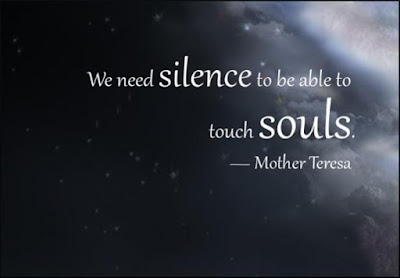classic masterpiece of religious satire that entertains readers with its sly and ironic portrayal of human life and foibles from the vantage point of Screwtape, a highly placed assistant to "Our Father Below." At once wildly comic, deadly serious, and strikingly original, C.S. Lewis's The Screwtape Letters is the most engaging account of temptation—and triumph over it—ever written.Sports—athletic contests—are fertile ground for temptation. Every athlete can speak to the unique challenges their sport presents in this fight between good and evil. Opportunities to mock authority, cheat, lie and even steal abound, especially during competition. But today, the occasion to resist may be even more difficult than it was in 1942 when Lewis first prophesized against the work of the devil. And still, the antidote isn't any more challenging or difficult. In fact, one response has caught on in the popularity of the mindfulness movement. It's something you and I have in fleeting moments throughout our day. We find it in nature and at Mass. We take a moment of it in public gatherings and if you play for Steve Kerr and the Golden State Warriors you get ten minutes of it at every practice. It's silence.
Lewis wrote that "Noise is the music of the devil." If that is true, the devil has a lot of power; Satan gets great airtime. When is the last time you found yourself free from noise? Where do you encounter silence?
Silence shouldn't be something we must "find." However, I do believe silence is increasingly more difficult to grasp. How so? In one way silence is counter-intuitive for silence is not the absence of all sound. For example, the runner who removes his or her headphones is now open to other noises—the sound of crashing waves, birds chirping, a baby crying or even panting and shoes hit concrete one step after another. And, a runner may also hear honking horns, the crack of the Muni bus line or a car alarm that won't shut off. No longer is it just my playlist that I have to turn off; it seems that everywhere I go, music is playing in the background. Is it just me or did Nordstrom and Macys' REALLY turn up the volume inside their stores in the past two to three years? Furthermore, large flat screen monitors can be found in most restaurants and the majority of all bars. These are the distractions, the noise that Lewis warned against.
Sports is the domain I have encountered even more noise. As mentioned in my posting "Notre Dame, You've Change But....," I don't think the band of the Fighting Irish should have to compete with Ozzy Osbourne for attention....nor should the team on the field. In MLB, I have had a hard time hearing who is batting next because the players' signature walk-up song is so loud. At NBA basketball games, popular, hip-hop music now plays on both offense and defense. The irony is that the music is only echoing the inherent rhythm of the game. Why can't we hear those notes? Golf is one of the few places that I truly get to disconnect from noise in its many guises. No cell phone, no texting, no music. Just the sound of the game, nature around us and the conversation that unfolds. This reality was under attack a few weeks ago, when a friend asked, "Do you mind if I play music from our iPhone?" Yes, I do. He turned it down but played his music anyway (NB: Johnny Cash and 18 holes of golf...not a great pairing).
Sitting courtside after practice, Kerr provided an example called “the silent 10”, an exercise he happened to use that day. He instructs Warriors players to run the team’s plays for 10 minutes, five-on-zero, going up and down the court. The catch: no talking allowed. Hand signals only. “It’s bizarre, because usually there’s chatter, everyone yelling on the floor, people off the court talking,” says Kerr. “Now, players have no choice but to be fully engaged.” To call out a play called “Strong Elbow”, Curry needs to flex, then point to his elbow. Everyone must pay attention. “It’s incredible the level of focus you achieve,” says Kerr. “By the end, it’s like this Zen moment. It’s the most we’ve gotten out of practice in the last month, really.”The beauty of this spiritual discipline is that it costs nothing and is not difficult to do. Silence might be difficult for some to endure (?) or enjoy at first, but silence is also something that an athlete can ease into. For example, many rowers erg with music. Erging is challenging and far from what any athlete would consider fun. However, erging is essential for success in crew. Rather than conducting an entire workout with the varsity team's mix, opt for a set in silence. This exercise can be incorporated into a routine—one that is both mindful and necessary. A coach can ask their athletes what they hear in the silence. A rower may hear the sound of her breath, the speed of the slide or the pull of the chain. Every sound can be an invitation to learn more about rowing form and function. Every sport can incorportate 10 minutes of silence....
It might be a stretch to state the silence will allow students to hear the voice of God, but it might be a portal....a gateway....an invitation to how God is always to trying to reach us, teach us and speak to us...in our hearts and our deep desires.
Photo Credits
Kerr and Carroll
Mother Teresa Quote
Silent Ten




No comments:
Post a Comment